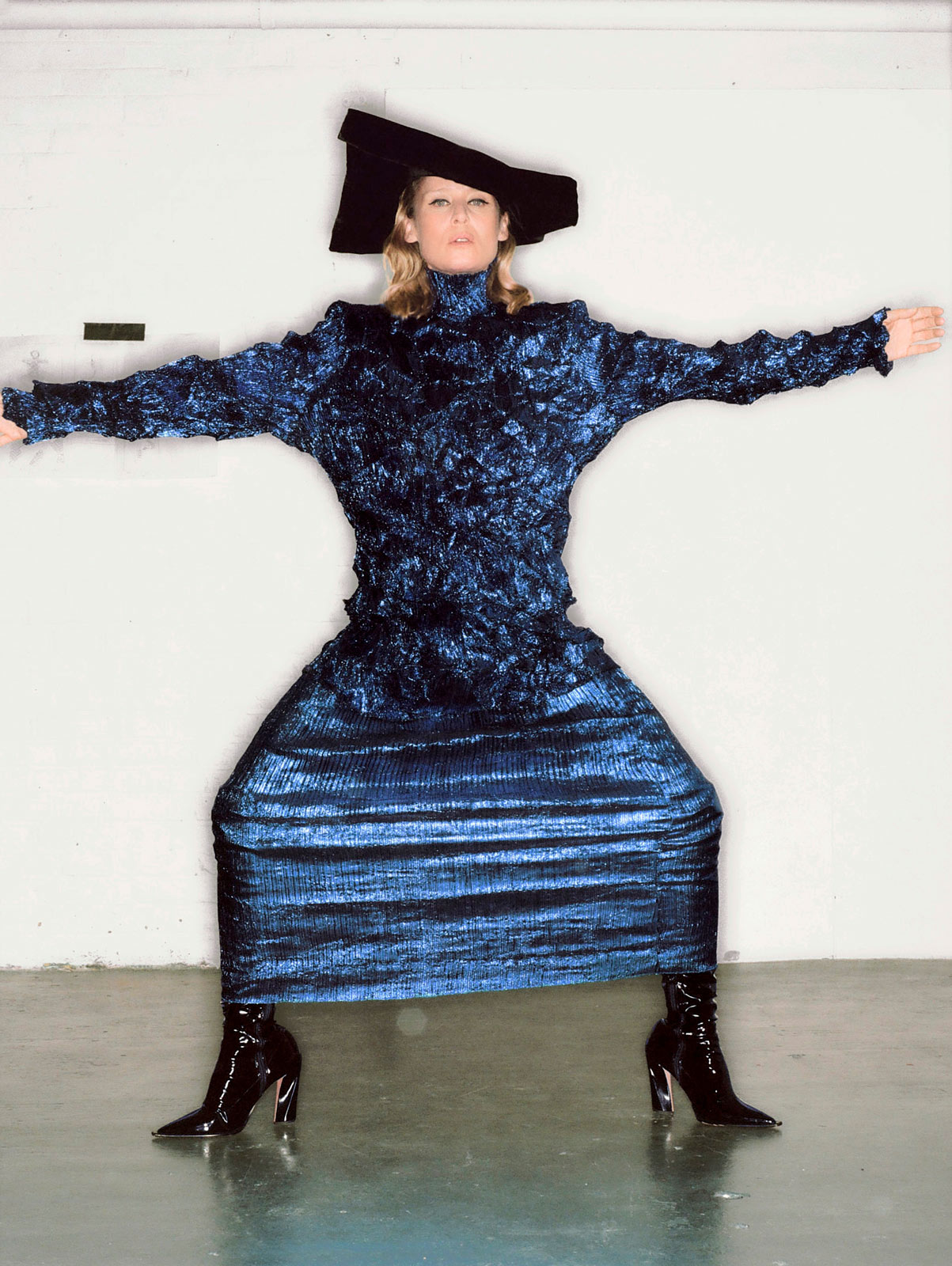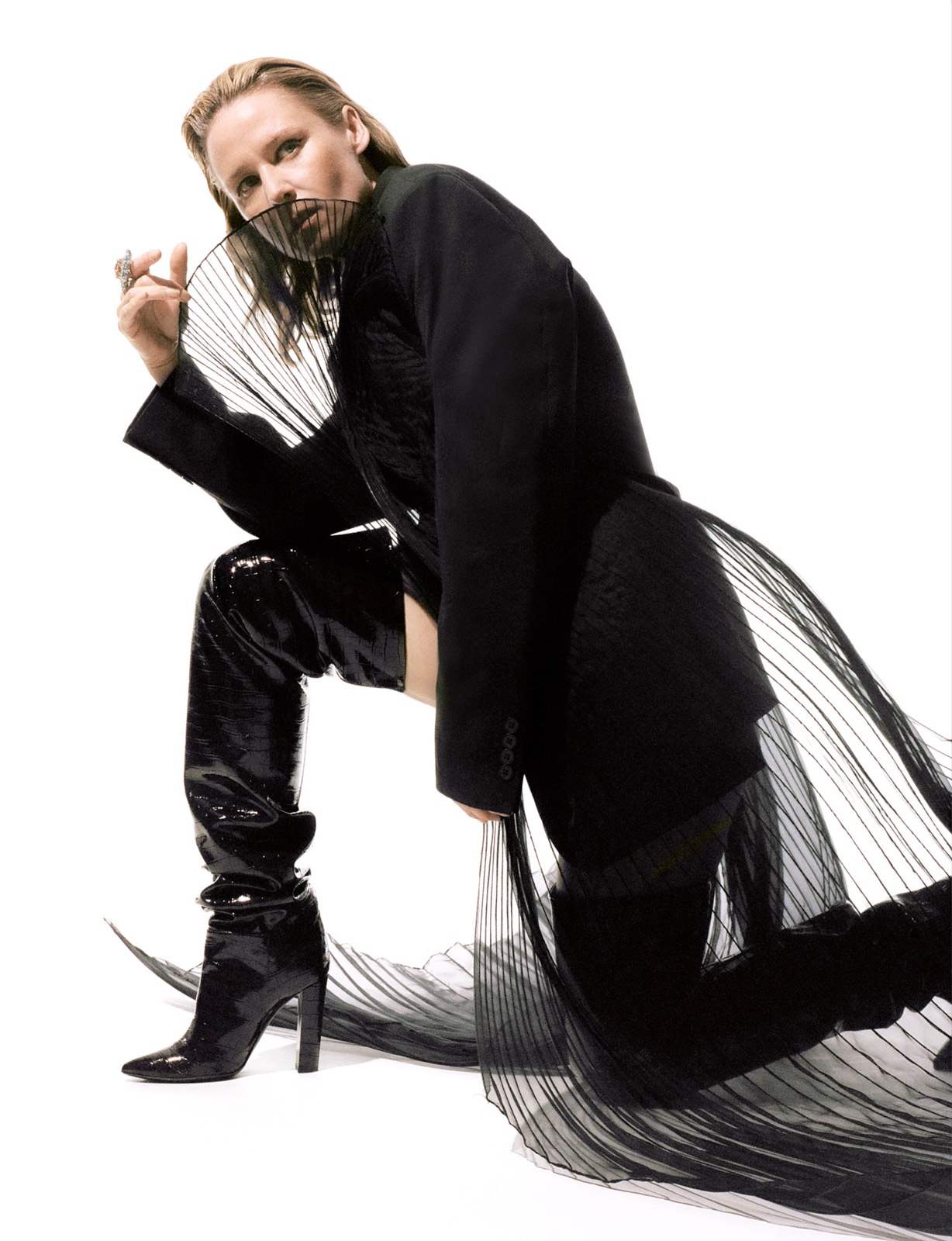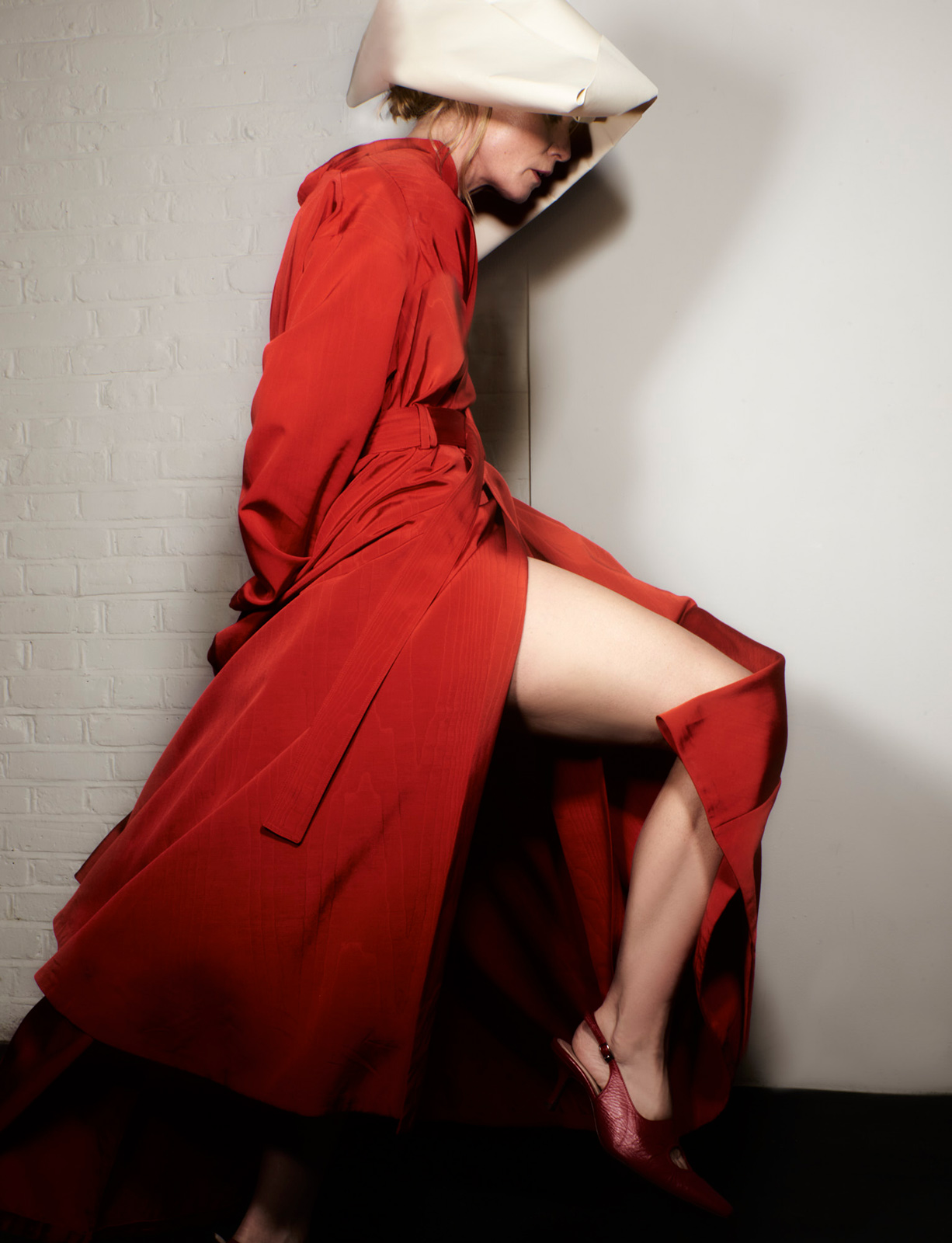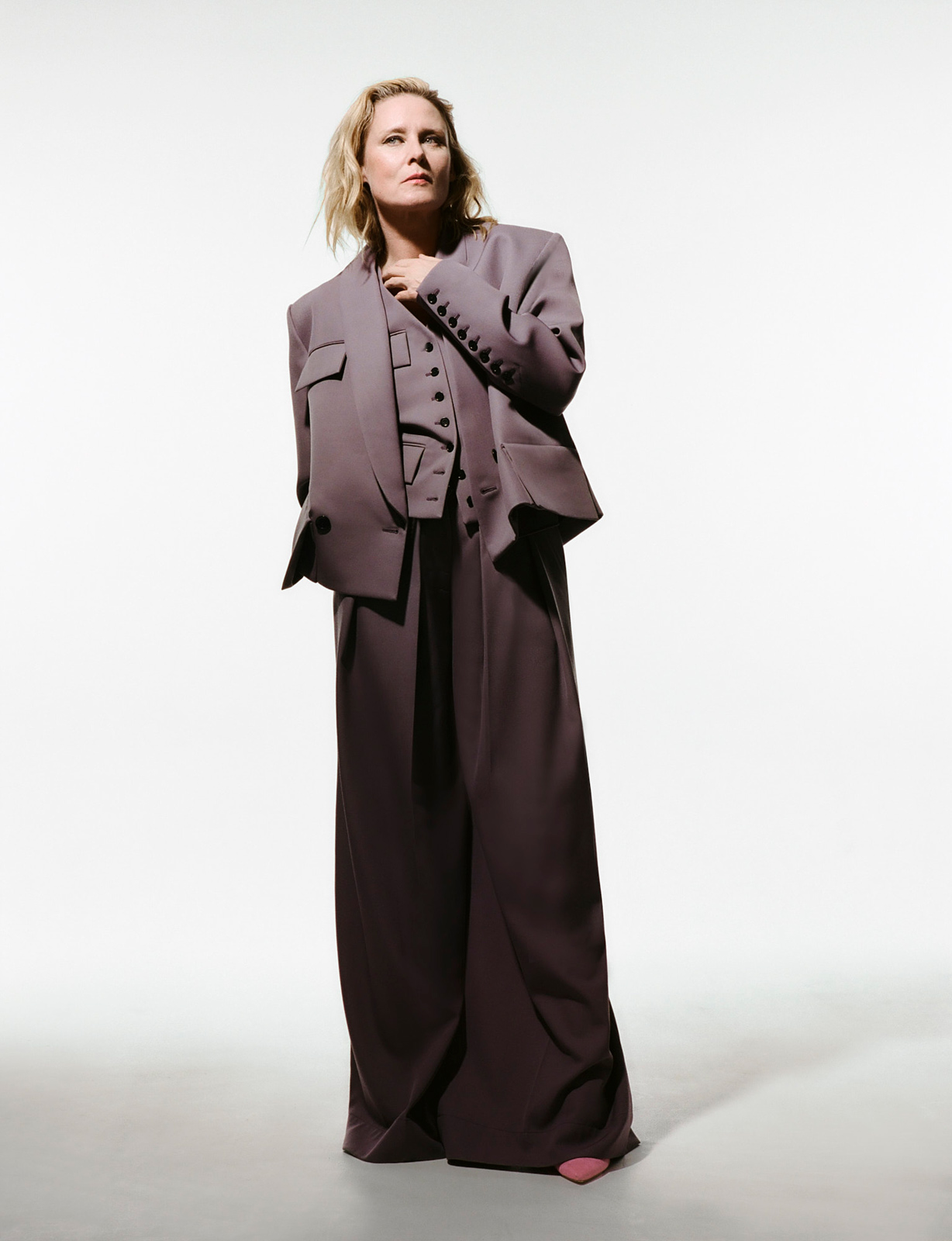
The Irish singer-songwriter’s album with DJ Koze, ‘Hit Parade,’ is an exploration into the sonic undercurrents of all that shimmers
Sometime in the early aughts, I turned my back on music. It happened slowly, then all at once. After a decade of worshiping at the altar of rock ’n’ roll, of recording songs and playing in bands, music’s spell lifted. It’s tricky to pinpoint what exactly sobered me on my first artistic obsession—maybe my crude musical talents couldn’t keep up with my interests, or perhaps my passions simply changed from writing lyrics to writing fiction. Whatever happened, the ‘vibe shifted’ (which, for the curious, now revolves around curating debaucherous readings). In short: I have a complicated relationship with musicians. Having once been one, I feel intimate with them, yet recognize my estrangement.
This personal baggage made engaging with Róisín Murphy’s new album Hit Parade all the more bewitching. Speaking with Murphy and listening to the record forced me to reckon with music’s role in shaping my own youth, and my subsequent ideas about what it means to be an artist. In part, these themes emerged because I happened to find the Irish pop legend in a whimsical spirit. Rather than exploring the constellation of beats and clubs where Murphy’s star most obviously shines, our conversation circled around philosophy, culture, and her own evolution as a singer. Her relentless drive to create and grow makes her stand out not only from a failed musician like me, but from the vast majority of all artists—most of whom give up, burn out or if they do break out, often get sucked into the black hole of self-plagiarizing.
Murphy insists Hit Parade was produced from a place of joy, yet there’s an edge underscoring it all. Beachy guitars feed into the sun-kissed chorus of “The Universe,” blissfully sailing away to give rise to a throbbing, hotrod-like synth, its engine humming into “Hurtz So Bad.” These mood swings occur throughout the record, its 13 tracks glorifying parties and romance before dropping into more unsettling registers. Taken together, Hit Parade feels like a molly trip through Murphy’s psyche: pulsing with life, but with a darkly sensual undercurrent.
Like anyone who has survived 30 years in the music industry, there’s something of the hustler in Murphy. Born in Arklow, Ireland, her family immigrated to Manchester, England to look for work in the wake of Ireland’s financial meltdown in the ’80s. Among the angst and alienation of Thatcherite England, Murphy fell in with the noise and punk scenes, before going on to found electro duo Moloko in the ’90s. Since then, she’s launched a solo career, churned out records, and toured the globe—channeling any excess creative energies into fashion, film, and acting.
Yet even after so many years, albums, and accolades, Murphy still seems enchanted by music, and all its artistic horizons and collaborative possibilities. She’s not jaded by the industry’s dizzying corporatization or the collapse of record sales—she’s as intoxicated by its magic as any kid picking up a guitar for the first time. Hit Parade’s exuberant, hedonistic, and troubled soul suggests that an artist must celebrate the muse’s transient nature. We should dance beneath the bright lights because we know they’re always on the verge of flickering out.
Sammy Loren: You collaborated on Hit Parade with DJ Koze, sending tracks back and forth to each other over many years. How does a record evolve differently when you’re working on it over a longer period of time as opposed to banging it out?
Róisín Murphy: With electronic and dance music people often have their own studio, so there’s never that mad production line process going on in my work. Working over a long time frame was the only way to make this record with the whole pandemic. And to be honest, I don’t really work on the other end of the extreme. I just spent most of the time really happy that DJ Koze was working with me, and I didn’t mind how he was doing it, because the results were so refreshing and different—every track was such a journey.
Sammy: An artist has this magical ability to create, but that compulsion can also be a great burden, almost like a disease. Is there a certain problem you’re trying to solve through your art?
Róisín: Yes, you might be right about the problems I’m trying to work out, but it’s also with joy, you know? And particularly over the last few years, it has been very joyful to witness so much—music, collaborators, interesting projects—pour into my life. I might’ve even had a slight fear going into my forties, but the last 10 years have become the most prolific, colorful, and creative of my life—you can hear that on Hit Parade.
Sammy: The music industry fetishizes youth. Talk about the challenges of putting a record out now that you’ve been in the game longer than many new acts have been alive.
Róisín: One sentence about that is enough. I don’t want to be defined by that, it’s not a ‘cause.’ I’m not a ‘cause’ person, I’m not a ‘confessor,’ and I don’t make ‘confessor’ work. There’s far too much of that around if you ask me. It bores me to death.
Sammy: What do you mean confessor?
Róisín: It’s like songwriting for tabloids. I’m interested in things that work on lots of levels. I’d like to keep the playing field as clear as possible so that I can be as creative as possible. I could take on any theme, any time—why not?
Sammy: I come from the world of literature, and there’s maybe a parallel trend to confessor—it’s called autofiction.
Róisín: Lord Mercy!
Sammy: So you’re saying it’s a trend in music too?
Róisín: You don’t hear it? It’s so mundane. I’m not saying there isn’t any of that in my work, but if that’s all there is, and it’s supposed to be about authenticity, well, it’s terribly cynical.
Sammy: Hit Parade’s tracks are dancey and textured, but I sense layers of sensuality, too. What’s the connection between music and romance for you?
Róisín: My career started with a romance, and so there is some degree of inseparability for me. Most of my previous boyfriends have something to do with music. Then there’s the simple fact that music turns me on, and I find it very sexy to dance.
Sammy: At 15, you were living in Manchester when your parents split up. They moved back to Ireland, but you stayed. Teenage years profoundly shape our tastes, I’m curious what shaped yours back then?
Róisín: I was pretty shaped already otherwise I wouldn’t have had the strength to do what I did. I was always around live music and I loved adults; I loved hearing what they had to say. I had an incredible cultural upbringing. But we’d had a nuclear breakup in the family, and my mother wasn’t able to care for me, even though she wanted to. At 15, I was confident enough to go, No, I’m not going to go with you. That was because I’d made great friends in Manchester who were really into music. We had an interesting journey that we were on together, and I didn’t want it to end. I was lucky, because nowadays what I did wouldn’t be possible—I would have had to go with my mother, or to a foster home. Instead, I found a little flat that the government paid for plus a few quid a week. They gave me the greatest gift I could have ever had: to be independent.
Sammy: Your music is always evolving. What steps do you take to keep pushing yourself to grow artistically?
Róisín: I don’t do anything extra ’cause that’s just the mode in which I work. There’s never a pre-planned thing, so now I just do everything the same way. It’s like, Oh, I don’t know how DJ Koze works, he’s a weirdo, but you know, I’ll give it a whirl. It’s that openness that I’m looking for, that’s the buzz I want.
Sammy: What’s it feel like to create that buzz?
Róisín: Like you’re on the edge.
Sammy: Listening to Hit Parade, there are many influences—from hip hop to psychedelia to soul. What influences your work that’s not music?
Róisín: Film for sure, and acting and philosophy. It’s a massive buzz. I’m either inputting or outputting, I don’t give myself any time in between. There’s a dissonance on the album like there is in the world, a feeling of paradise interrupted, paradise with some white noise in the background, always reminding you that everything has fallen apart.
Sammy: What about that paradox is compelling to you?
Róisín: It’s real—realer than all those ‘confessions.’
Sammy: You’re about to tour the US. What are you looking forward to?
Róisín: I always look forward to coming to America to sing because I bring me A game. The culture that I’m obsessed with, the music that I love, Hollywood…you feel like you’re going to lay the line.
Sammy: What is lay the line?
Róisín: When you think about all the dreams from all over the world, somehow, they all arrive in Hollywood and then get pulped into something else, another dream. When you think about it, maybe reality isn’t real at all, and this is all a big cosmic joke. I’m being very philosophical today, aren’t I?
Sammy: What’s behind the name, Hit Parade?
Róisín: DJ Koze joked, ‘I will put you on the Hit Parade, I’ll put you on Top of the Pops.’ He was being funny, of course, ’cause there is no Hit Parade or Top of the Pops, not anymore. I named the album that because it doesn’t exist, pop stars don’t even exist. It’s so fractured now and that’s a good thing: I do whatever I want. I’m not a product and I’ve never been a product and I never allow myself to be a product. I’m proud of that.
Sammy: What do you hope audiences take away from Hit Parade?
Róisín: Really just to climb into it. It’s a world, it’s a universe, it’s cosmic—go in and enjoy yourself. I seem to be in a searching mood, don’t make me out to be all existential.
Sammy: Are you going through an existential crisis?
Róisín: I think I am, now that I’ve had this conversation with you.
Talent Róisín Murphy. Hair Liam Russell at Julian Watson. Make-up Kirstin Piggott at Julian Watson. Creative Direction Hasan Hejazi. Photo Assistants Tom R Porter, Jody Evans. Styling Assistants Anna May Sweasey, Kristina Valdez.


























